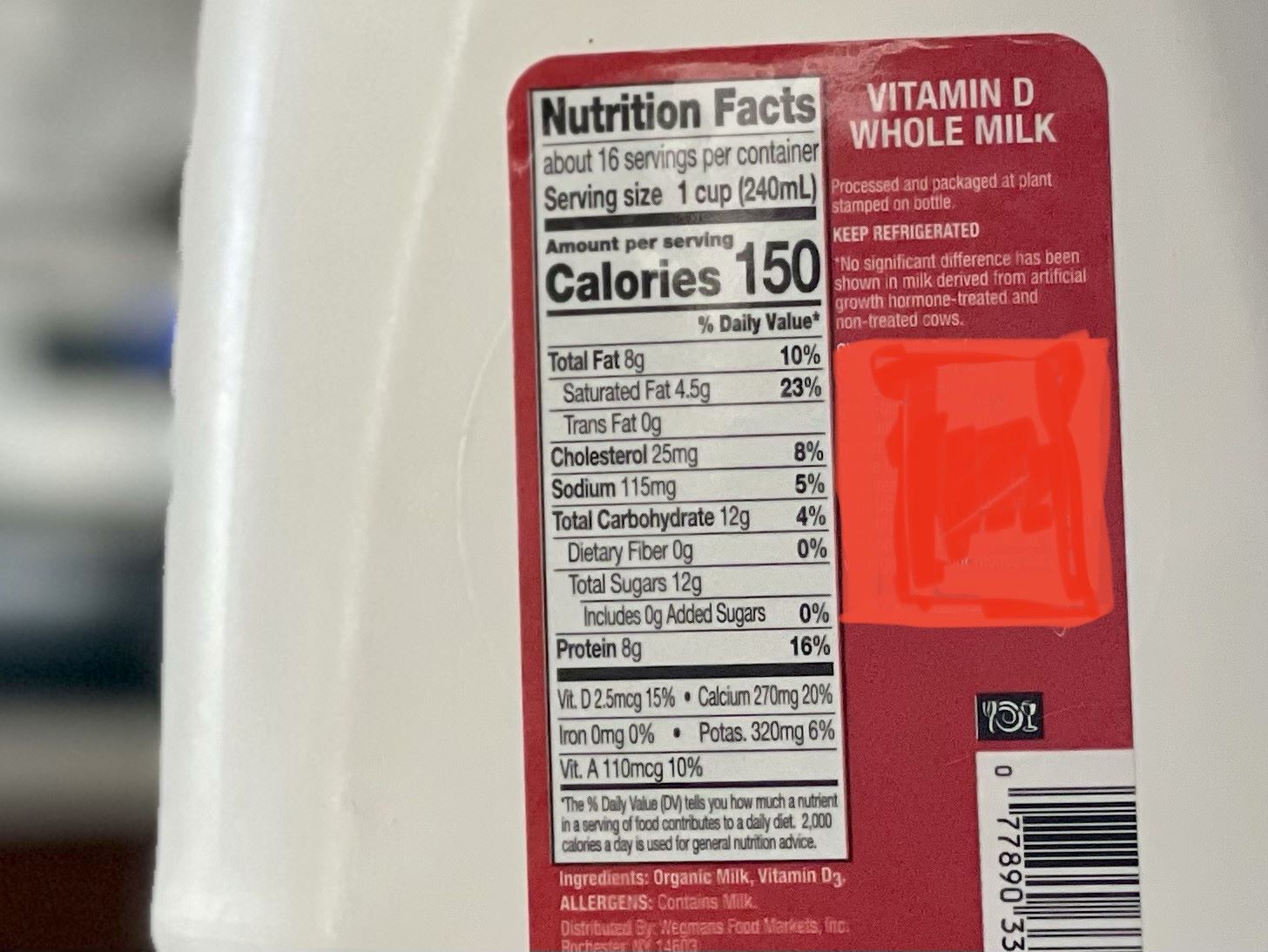
Navigating through the maze of dietary information can often feel overwhelming. With countless diets, health trends, and nutritional studies popping up, how does one sift through it all to find what's truly beneficial? Dietary information is crucial for making informed choices about our health and well-being. This post aims to demystify the complex world of nutrition by presenting 25 essential facts. From understanding macronutrients to debunking popular diet myths, these insights will empower you to make healthier decisions. Whether you're a seasoned health enthusiast or just starting your wellness journey, these facts will provide valuable knowledge to guide your dietary choices, ensuring you're well-equipped to navigate the vast landscape of nutrition with confidence and clarity.
Understanding Dietary Information
When it comes to maintaining a healthy lifestyle, knowing what's on your plate is as crucial as the workout you plan. Dietary information provides the roadmap to understanding the nutrients, vitamins, and minerals our bodies need to function optimally. Let's dive into some fascinating facts about dietary information that might surprise you.
-
Calories measure the energy food provides. While often viewed negatively, calories are essential for energy and survival.
-
Macronutrients, including carbohydrates, proteins, and fats, are the primary energy sources in our diet. Each plays a unique role in maintaining health.
-
Carbohydrates are the body's main energy source, while proteins are crucial for repair and growth. Fats, often misunderstood, are vital for brain health and energy.
-
Micronutrients, such as vitamins and minerals, are needed in smaller amounts but are essential for preventing disease and ensuring the body functions properly.
The Importance of Fiber
Fiber is a superstar in the world of nutrition, offering benefits that extend beyond simple digestion.
-
Dietary fiber, found in fruits, vegetables, and whole grains, helps regulate the body's use of sugars, helping to keep hunger and blood sugar in check.
-
There are two types of fiber: soluble and insoluble. Soluble fiber can help lower glucose levels and blood cholesterol, while insoluble fiber helps food move through your digestive system, reducing the risk of constipation.
Decoding Food Labels
Food labels are your guide to making informed choices about what you eat, providing critical information about the nutritional value of food items.
-
The serving size on a food label helps you understand how many servings are in a package, crucial for accurate calorie and nutrient intake calculation.
-
Percent Daily Values (%DV) on labels show how much a nutrient in a serving of food contributes to a daily diet, helping consumers understand nutrient levels in the context of their total daily needs.
The Role of Vitamins and Minerals
Vitamins and minerals, though needed in only small amounts, are powerhouse nutrients that support a myriad of bodily functions.
-
Vitamin D is essential for bone health, as it helps the body absorb calcium. Interestingly, the body can produce it when exposed to sunlight.
-
Iron is a critical mineral for creating hemoglobin, a protein in red blood cells that carries oxygen from the lungs to the rest of the body.
Understanding Fats: The Good, The Bad, and The Necessary
Not all fats are created equal, and understanding the difference is key to a healthy diet.
-
Unsaturated fats, found in avocados, olive oil, and nuts, are considered beneficial fats that can improve blood cholesterol levels.
-
Saturated fats, found in red meat and dairy products, should be consumed in moderation as they can raise bad cholesterol levels and increase the risk of heart disease.
-
Trans fats are the worst type of fats, often found in processed foods, and can increase bad cholesterol while lowering good cholesterol.
The Sugar Debate
Sugar, particularly added sugar, has been at the center of many health debates.
-
Natural sugars, found in fruits and milk, come with essential nutrients. Added sugars, found in sodas and sweets, provide no nutritional value and can contribute to health issues.
-
The American Heart Association recommends limiting added sugars to no more than 6 teaspoons (25 grams) per day for women and 9 teaspoons (38 grams) for men.
The Power of Hydration
Water plays a pivotal role in our diet, affecting everything from brain function to physical performance.
-
Staying hydrated helps maintain the balance of bodily fluids, involved in digestion, absorption, circulation, and even temperature regulation.
-
Drinking water before meals can also aid in weight loss by promoting satiety and reducing the overall calorie intake.
The Impact of Processed Foods
In today's fast-paced world, processed foods have become a staple in many diets, but they come with health risks.
-
Processed foods often contain high levels of sodium, unhealthy fats, and added sugars, which can contribute to various health issues, including heart disease and diabetes.
-
Minimally processed foods, like canned vegetables or pre-cut fruits, can still be part of a healthy diet if they don't contain added sugars, fats, or sodium.
The Benefits of Plant-Based Diets
Plant-based diets have gained popularity for their health and environmental benefits.
-
Following a plant-based diet can lower the risk of heart disease, obesity, diabetes, and certain cancers.
-
Plant-based diets are rich in fiber, vitamins, and minerals, while being lower in calories and saturated fats compared to diets high in meat and dairy.
The Role of Probiotics in Digestive Health
Probiotics, found in fermented foods like yogurt and kimchi, are beneficial for maintaining a healthy gut.
-
Probiotics can improve digestive health, boost the immune system, and may even help reduce the severity of certain allergies and infections.
-
Consuming a variety of probiotic-rich foods can help ensure a diverse and healthy gut microbiome.
The Myth of "Superfoods"
While some foods are indeed nutrient-dense, the concept of "superfoods" can be misleading.
-
No single food can provide all the nutrients your body needs. A balanced and varied diet is key to obtaining the wide range of nutrients required for good health.
-
Foods often labeled as "superfoods," like berries, nuts, and leafy greens, are indeed healthy but should be part of a broader, balanced diet.
A Fresh Perspective on Nutrition
Diving into the world of dietary information opens doors to a healthier lifestyle and a deeper understanding of what fuels our bodies. Armed with these 25 facts, you're now better equipped to make informed choices about your meals and snacks. Remember, nutrition isn't just about counting calories or sticking to strict diets. It's about balance, variety, and listening to your body's needs. Whether you're a seasoned health enthusiast or just starting on your wellness journey, these insights can guide you toward more mindful eating habits. So, go ahead, experiment with new foods, tweak your diet, and see how these changes positively impact your health and wellbeing. Here's to making every bite count and embracing the delicious diversity of nutrition!
Was this page helpful?
Our commitment to delivering trustworthy and engaging content is at the heart of what we do. Each fact on our site is contributed by real users like you, bringing a wealth of diverse insights and information. To ensure the highest standards of accuracy and reliability, our dedicated editors meticulously review each submission. This process guarantees that the facts we share are not only fascinating but also credible. Trust in our commitment to quality and authenticity as you explore and learn with us.


